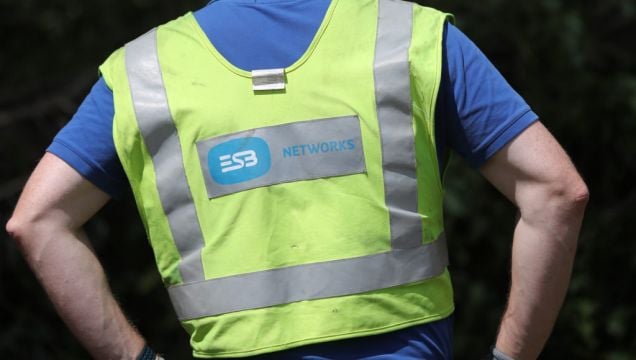The ESB has claimed before the High Court that the refusal by one of its employees to answer questions about alleged payments solicited from builders means the employee is in breach of the terms of his contract of employment.
In what has been described as an interesting and novel set of proceedings, the ESB is seeking a declaration from the court that Kieran Sharkey has breached his contract of employment by failing to answer questions put to him by the company earlier this year.
The application relates to allegations made last year that several ESB workers had sought unlawful payments from developers and builders in return for favourable treatment when carrying out works, including connecting projects to the national grid.
The allegations came to light in separate proceedings brought by the ESB, where it seeks orders requiring two building companies to provide it with information about several of its employees claimed to have sought cash payments to complete electrical works near constructions sites.
At the High Court on Thursday, lawyers representing Mr Sharkey, an electrician with the ESB who denies any wrongdoing, said as the matter is also the subject of a Garda investigation, he is entitled to a right to silence on the matter in order to avoid the prospect of self-incrimination.
The ESB represented by Marcus Dowling SC, appearing with Joe Jeffers SC and Hugh McDowell Bl, claims the right to silence, as claimed by Mr Sharkey, does not exist in the context of a private law dispute between the ESB and its employee.
The right to silence, counsel submitted, only relates to situations where a person is being asked to answer questions put to them by an entity of the State, such as An Garda Síochána.
Alleged payments
The court heard that Mr Sharkey had been referred to the ESB as being one of the individuals allegedly involved in the seeking of payments from customers.
These alleged payments, counsel said, were placed in the public domain having received a significant amount of media attention earlier this year.
Counsel said Mr Sharkey, with an address in Finglas, Dublin, had been asked in correspondence to answer questions, including if he had accepted any payments from any party for preferential treatment.
He was also asked that if he had done so, who did he get the money from, what amounts were involved, and what works were provided in exchange for the payments.
Counsel added Mr Sharkey, whose home was searched by gardaí as part of the investigation into the allegations, had refused to answer any questions.
Mr Sharkey said that after obtaining legal advice, and because the matter was the subject of a Garda investigation, he was evoking his right to silence so as to prevent any prospect of self incrimination. He further stated he has done nothing wrong.
Contract breach
Mr Dowling said that it is the ESB’s case that the refusal to answer the questions means that Mr Sharkey has breached the terms of his contract of employment, and as a result of the position adopted, the defendant's employment with the ESB has been brought to an end.
In reply, Michael O'Higgins SC, instructed by solicitor Robert Dore for Mr Sharkey, said the ESB is "absolutely not" entitled to any declaration from the court that would allow it to summarily fire their client for not answering the questions put to him.
Counsel said that it would be "unfathomable" for the ESB to be allowed to dismiss Mr Sharkey in such circumstances.
Counsel argued that the ESB's proposed action is premature, as the plaintiff has not subjected Mr Sharkey to any disciplinary process arising out of the allegations.
Mr Sharkey has been with the ESB since 2017, and has a good record of employment with the company, the court heard.
It was accepted that Mr Sharkey would have to face the consequences if he were to stay silent when questions were put to him during a disciplinary process.
It was also submitted by counsel that the right to silence does, in limited circumstances, go outside a process which involves a State entity, such putting questions to an individual.
The hearing, where the court has been asked to determine several preliminary questions in the ESB's claim, including if Mr Sharkey is entitled to a right to silence, is before Mr Justice Rory Mulcahy
The hearing continues.
In separate, but related proceedings the ESB and its subsidiary ESB Networks DAC has asked the Court for what Norwich Pharmacal type orders against two related firms, Richmond Homes Ltd and Arkmount Construction Ltd, requiring them to provide the ESB information.
The information sought include the names of the individuals who are alleged to make the demands for cash payments, how much was sought and paid by the firms, and what works were carried out in exchange for the cash.
The application has been opposed on grounds including that the companies have already provided the ESB with a large amount of documentation in relation to the claim, and that the application to the court is disproportionate and unwarranted.
Those proceedings were launched after the firms informed the ESB that its employees had sought payments from the two companies, which are involved in the construction of houses.
The complaint to the ESB has resulted in a Garda investigation.







